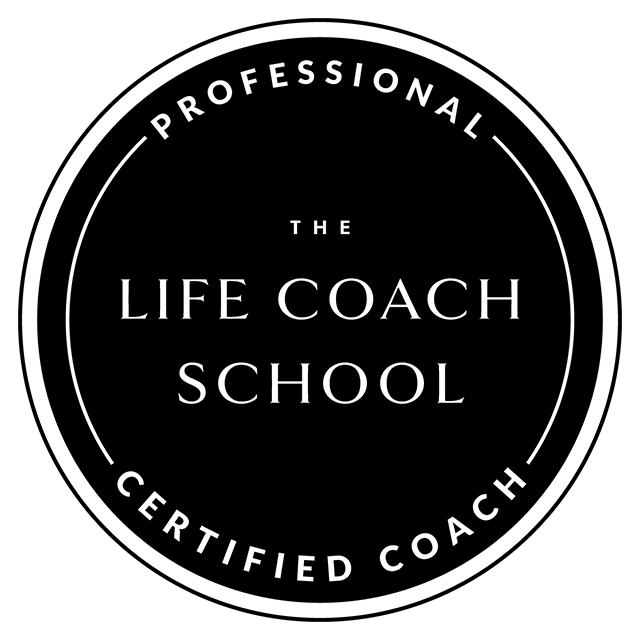Building A Life You Love
/We all know that life comes with many different phases and stages – and oftentimes those phases and stages turn out to be something a little bit (or a lot a bit) different than we had originally anticipated. Like we talked about last week, it’s important to notice where you’re expecting perfection, or thinking it absolutely has to be a certain way – because when we expect it to be something that it isn’t, we create a lot of unnecessary suffering for ourselves.
But let’s dive into today’s question. It is:
Q: How should our children build a life that they love throughout many stages in life?
The first thing that comes to my mind is contentment. I did a whole podcast episode on this a while back because it’s such an important topic. And not contentment as in you should just be content with what you have and never feel discontent or have bigger dreams than your current reality. Some people live that way and feel it’s best, and I’m glad that they’ve found a way that works for them, but I have a little different relationship with contentment.
There’s being content with what you’ve been given, or what direction your life has taken, because to argue with reality by thinking it should have been different, gets you nowhere. But there’s also a lot that we can gain by looking at the areas that we are discontent. For me, my discontentment came up every postpartum. Postpartum was a time in my life where I was forced to slow down and really look at the life I was living. I often came up against hard emotions that I had been trying to run away from, or to sit with the fact that being a mother is actually not that glamorous at all. If you’re trying to gain your sense of satisfaction and accomplishment from all that you have to show for your work, being a stay at home mom isn’t the first option I would recommend.:) There’s nobody handing out gold stars or giving you a raise, unless you make it known that’s what you want. One of the reasons I was feeling discontent, is because I was believing that what I was doing wasn’t enough – not when it was measured up against the societal norm for girls my age. So looking at my areas of discontent helped me to see where my work was as I moved towards contentment. I had to let go of some beliefs like I should be doing more or I’m missing out on something better, and there were some changes I had to make as well – starting my business, moving to a new city, conversations to be had with my husband, etc. Feeling discontent, or not loving the life that you have, doesn’t need to mean that you’re an ungrateful brat. It simply means that there’s some digging to do so that you can find out what changes need to be made.
Another thing that comes to mind here, is living from your heart. If you want to live a life that you love, no matter what stage of life you are in, you have to come from your heart. That means knowing what’s in there, and being willing to share it with those around you. We know that it isn’t our life that creates our feelings – it’s our thoughts about our life that does. (You do know this, right?:) That means that no matter what you’re currently going through, you can love the life that you have if you want to. And the reason I add “if you want to”, is because there are times when we don’t love our life, and we don’t want to either. Maybe we recently suffered a hard loss. Got a terrible diagnosis. Can’t find a way to move forward with our spouse. There are a million and one reasons that we aren’t in a place to love the life that we currently have, and that’s okay. Pain is a part of life, and there’s no need to always look on the bright side or push our way past the pain faster than we’re able to. Living a life that you love means also accepting the trials and struggles that come with it – some are ones that we never would have chosen ourselves, but they are here nonetheless. Learning to be open about what we’re going through, using our struggles to connect with others, and becoming stronger as we move through them is one of the best learning grounds for living from your heart. Because you can’t have all good and none bad – we’re meant to have a contrast, so that we can appreciate all of it.
The last thing I’ll say here (because you know me, I have so much to say I could write a book. Oh yeah, that’s why I am.) is that comparison is the thief of joy. If you want to love your life, stop comparing your life to others. That’s one of the reasons that I don’t think I will be back on social media myself. I know there is a lot of good that can come from it, but I also know that you have to be very mindful and intentional with how you’re using it – and since the app itself is designed to have you be the opposite of those, I don’t know if it’s a worthy battle to be fighting. But with all of this “connection” that we have these days, we also have so many more ways to compare ourselves to others and ways to feel like we aren’t doing or being enough. The connection that we think we may be getting from our online situations may very well be only a sad substitute for the deeper connection that we’re actually craving. Each of us have to decide for ourselves, but those are some things to keep in mind for both yourself and your kids, as you think about how you’re living your life.
There’s only way I recommend comparing, and that is if you use it to inspire you. Not to make yourself feel better or worse about what you have, but simply to inspire the amount of ideas that you have circulating in your head about what’s possible. There are so many incredible people with so many incredible ideas about how to live, or what to try, or how to make your life better, but if you’re trying to fit them all into your one single life at the same time, it’s going to be pretty confusing and hard. Instead, choose one or two who you really admire, and then learn from them. Apply some of the things that they recommend, maybe ask for advice depending on your relationship to them, or simply allow their perspective to give you the perspective shift you’re needing in your life. We gain so much by working together, and learning from each other, rather than thinking it’s all a big competition and the one who does it by themselves gets the biggest star at the end of the road.
So if I were to boil it all down into a few bite sized pieces, here’s what I would recommend for building a life you love:
1. Accept and be open about your struggles and trials.
2. Learn from them and from your discontentment to create the changes you desire.
3. Know what’s in your heart, and live from it. (Again, not expecting perfection here. Even 1% more than you did yesterday.)
4. Be inspired by others, and limit the amount of input you’re taking in.
What are your thoughts on living a life that you love? Anything in particular that you’ve learned through your years?
We’ll be back again next week with our last question of the series.


